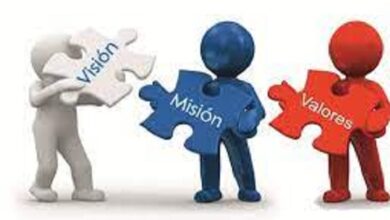Best HR books for beginners with 23 Best Books for HR
HR books
In this article we wil impart you the Best HR books for beginners with 23 Best Books for HR.
Books are one of the main and richest sources of knowledge, in any field. Dedicated HR professionals must always be up to date with reading the main books recommended for the area. Want to recommend the best books for HR? Keep reading.
In addition to providing greater learning about specific content, improving writing and reading, books help to solve problems by presenting the experiences and views of experts on topics that directly impact their routines and companies, which allows us to acquire practical skills based on in previous experiences.
Best HR books for beginners
We list below those that we consider the best books for human resources professionals, leaders, managers or those interested in these areas that seek to provide development and growth for people and organizations.
Book #1 – The Fifth Discipline – Peter Senge
In this book, Peter Senge comments on the five disciplines identified as fundamental to facilitate the innovation process in the so-called “learning organizations”. He argues that the fifth discipline, systems thinking, by integrating all the others, would be the foundation.
Starting from the point that people are the main factor in the processes of change within companies, the author presents ideas, tools and clear examples so that you can develop integration at all levels of your company.
Book #2 – Good Boss, Bad Boss – Robert Sutton
With great examples of what not to do, PhD and Stanford professor Robert Sutton presents practical tips for managers and leaders to become the best they can be.
Despite being part of the daily life of those who are in front of a team, warnings and dismissals remain delicate tasks. It is by thinking about situations like these that, through real cases, the author shows how it is possible to learn to be a good leader.
Book #3 – How Google Works – Eric Schmidt and Jonathan Rosenberg
Important lessons on management and human resources are transmitted by Eric and Jonathan, when they explain how the focus and investment in the search for a new category of professionals, known as intelligent creatives, make the organization’s growth possible.
Through stories, they discuss how to unite technical and commercial knowledge, as well as creativity for innovation and attracting countless talents to Google, a company that has become one of the largest in the world.
Book #4 – Competence: the key to performance – Cecília Whitaker Bergamini
Individual competence as a competitive differentiator is the central theme of this work, which shows the importance of self-knowledge, as well as the impact of those in management to assist in the development of the employee’s technical and behavioral skills.
Understanding and liking your area of expertise are important points to achieve results, but when we think about management, understanding ways to enhance the skills of each one is what can increase performance in companies.
Book #5 – Crucial Conversations: High Interest Conversation Skills – Kerry Patterson + 3 authors
Developed over 30 years of research, the authors show the skills needed to successfully hold conversations considered highly interesting, even with differing emotions and opinions.
Leaders with an eye on improving their communication and the impact of their influence will find valuable tips throughout the pages of this book.
Book #6 – Creativity S/A – Ed Catmull
How to build and develop creativity in the corporate environment?
Ed Catmull, who together with the likes of Steve Jobs and John Lasseter founded Pixar, offers business advice and ideas for those looking to develop a culture based on creativity.
With brainstorm sessions and other references to apply within your company, the author shows how even finding the positive side of mistakes can be a differentiator to achieving success.
Book #7 – Discover Your Strengths – Marcus Buckingham
Often companies end up spending more time and money trying to correct the weaknesses of their employees than improving the ones that are already strong, which discourages their employees.
In this book, the focus is precisely to show how leaders and successful people managed to achieve excellent results by investing in the development of their qualities and talents.
Book #8 – 100% Energized Teams – Heike Bruch
Knowing how to leverage people’s energy in their work environment is one of the differentials of a good leader, according to writer Heike Bruch.
Considering people as the greatest asset of a company, the book brings techniques and strategies to help managers, regardless of hierarchical level, to understand and manage the energy of their employees towards productive energy, providing greater growth and innovation.
Book #9 – Execution: The Discipline to Get Results – Ram Charan and Larry Bossid
Addressing the themes of strategy and operations, uniting people and key processes of each business, the authors present teachings to develop a practice focused on execution and bring results to your company.
You learn, for example, how to lead these processes and eliminate the gaps between the promised results and those achieved through consistent dialogue, which is one of the keys to good management.
Book #10 – People management in innovative companies – Jean Pierre Marras
Professor Jean Pierre, through historical analysis and field research, shows the causes of the main changes in people management, as well as their impacts on the scenarios of the new corporate models.
Possible answers and reflections for several questions such as, what is the responsibility of the human resources area, or the reasons for the drop in the level of employment at a global level, you will find in this book.
Book # 11 – People management: the new role of human resources in organizations – Idalberto Chiavenato
To face the challenges in the area of people management, Idalberto Chiavenato leads managers and entrepreneurs to reflect on six actions: adding, rewarding, developing, monitoring, maintaining and applying people. Such actions establish the basis for the book and for good team management within organizations.
Book #12 – Emotional Intelligence – Daniel Goleman
Through practical tips aligned with more technical content, the author addresses the five key skills of emotional intelligence and their impact on relationships, work and even our well-being. Best HR books for beginners
In addition, he addresses how consciousness and the ability to deal with one’s own emotion affects lives and directly influences the development of the individual, bringing to its readers significant reflections on the importance of this other way of thinking about intelligence.
Book #13 – Thanks for the Feedback – Douglas Stone and Sheila Heen
We receive feedback on a constant basis, whether on a personal or professional level, but it is not always done in the best possible way.
In a good-natured way, the authors criticize the way of giving feedback and present tools that teach how to accept and learn effectively with advice and evaluations, even if not requested.
Book #14 – Break All the Rules – Marcus Buckingham and Curt Coffman
Based on two studies conducted over 25 years and over a million interviews, the authors sought to answer two questions, “What do the most talented employees need in their workplace?” and “How do the world’s top managers find, motivate and retain talented employees?”.
The findings lead to understanding ways to revolutionize people management and to obtain a competitive advantage in relation to products and services, focusing on the employee.
Book #15 – A new way of working – Laszlo Bock
With the experience acquired as Senior Vice President of People Operations at Google, Laszlo Bock, shows how to balance creativity and company structure.
Considered one of the best books on human resource management, its content promises to bring ideas that will transform the way of living and leading people for the better in any organization.
Book #16 – Bring your human to work – Erica Keswin
In a scenario where technology sometimes drives people away, it becomes even more important to promote connections and strengthen relationships between employees.
With helpful information and inspiring examples, the author accessibly presents ten ways HR professionals can transform their workplaces through building meaningful relationships.
Book #17 – Build it: the rebel playbook for world-class employee engagement – Glenn Elliott and Debra Corey
The book outlines a model for creating company value through sustainable employee engagement, emphasizing the key areas leaders should assess in their organizations.
Thus, he seeks to share a useful approach to building an engaged culture, offering references for professionals looking to promote this transformation.
Book #18 – Generation Z: a century in the making – Corey Seemiller and Meghan Grace
With the new generation entering the job market, it is increasingly necessary for human resources professionals to understand how these workers see the world.
The writers seek to analyze the life, career aspirations, relationship values and educational preferences, among other points of Gen Z, in order to effectively manage diversity in the workforce.
Book #19 – Talent wins: the new playbook for putting people first – Ram Charan, Dominic Barton and Dennis Carey
Breaking with traditional molds in order to actually value human capital, especially when it comes to planning in the selection processes, is a challenge faced by many organizations.
Based on this difficulty, the author exposes, through examples of the main organizations in Silicon Valley, ways in which it is possible to apply best practices to invest in the acquisition of good employees.
Book #20 – The Power of People – Jonathan Ferrar, Sheri Feinzig and Nigel Guenole
Respected authors in the area of strategic human resources, through an in-depth analysis and accumulated years of experience, present the ways in which institutions can use data for results-oriented management.
In short, it is possible to discover the best ways to apply people analytics within corporations, bringing significant changes to the organizational culture for the sector as a whole.
Book #21 – The talent delusion – Tomas Chamorro-Premuzi
In an easy way, Tomas talks about talent issues. What they are, how to measure, how to develop and other points about the characteristics of those we consider talented.
By bridging the gap between the science of talent psychology and everyday practices, this title aims to educate HR professionals and leaders on how to collaborate with employee development and engagement, leveraging their potential.
Book #22 – Unleashing the power of diversity – Bjorn Z. Ekelund
Ensuring ways to strengthen the organization and provide a plurality of cultures, experiences and beliefs has been a constant objective of leaders in the HR area.
The book seeks to help all workplaces, regardless of size or segment, be able to ensure that diversity in their companies is sustainable, breaking down barriers to genuine union.
Book #23 – We can’t talk about that at work! – Mary-Frances Winters
HR professionals must be able to handle sometimes sensitive conversations, such as sexual harassment and mental health, by allocating multiple employees to areas deemed sensitive.
The author’s work clarifies that the way to understand issues such as effective communication, even when dealing with difficult conversations, and the culture centered in the right way in organizations can be the main agent of transformation in the work environments.




